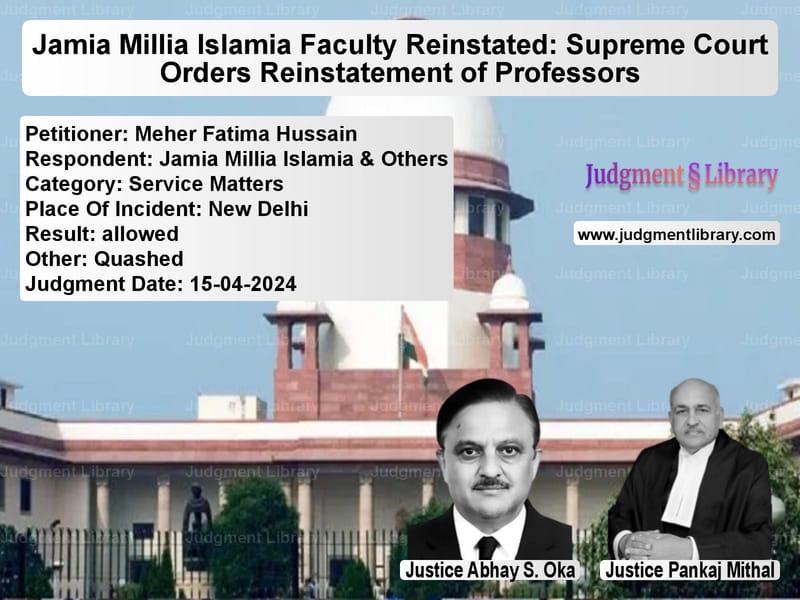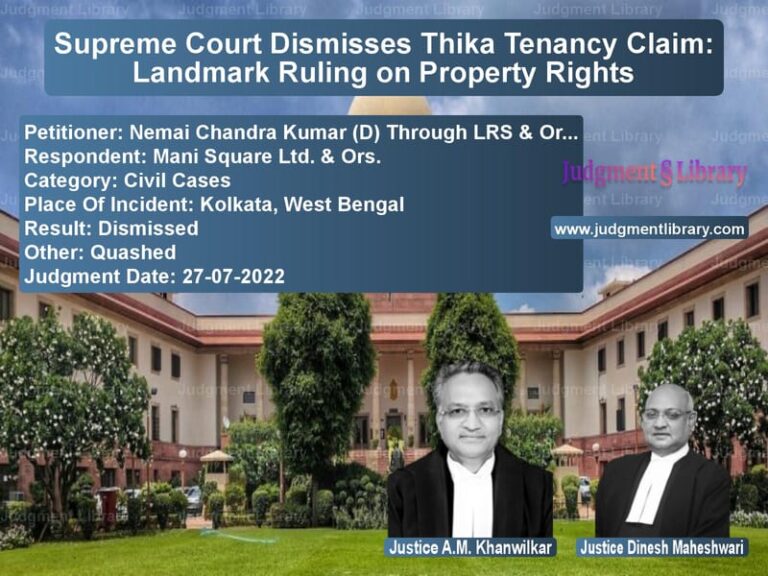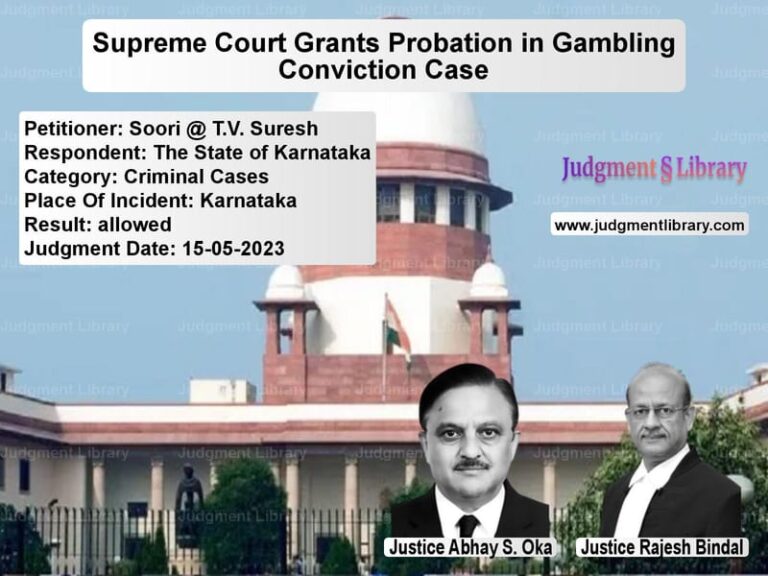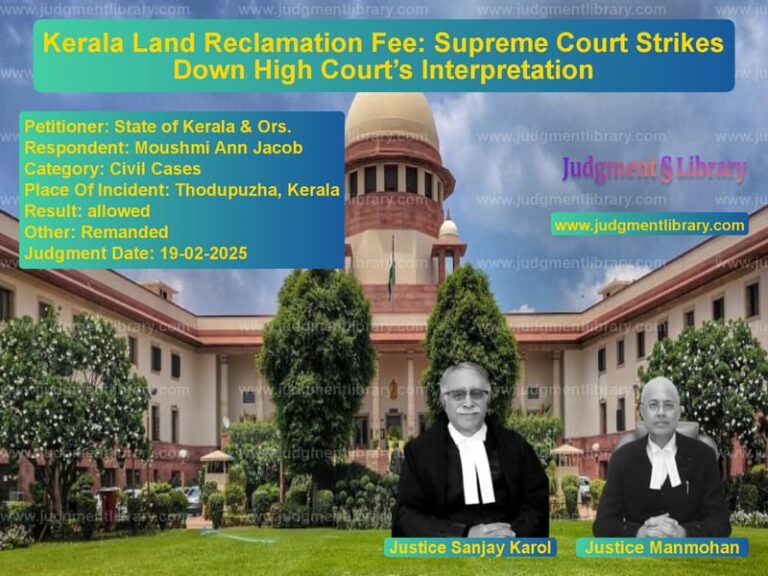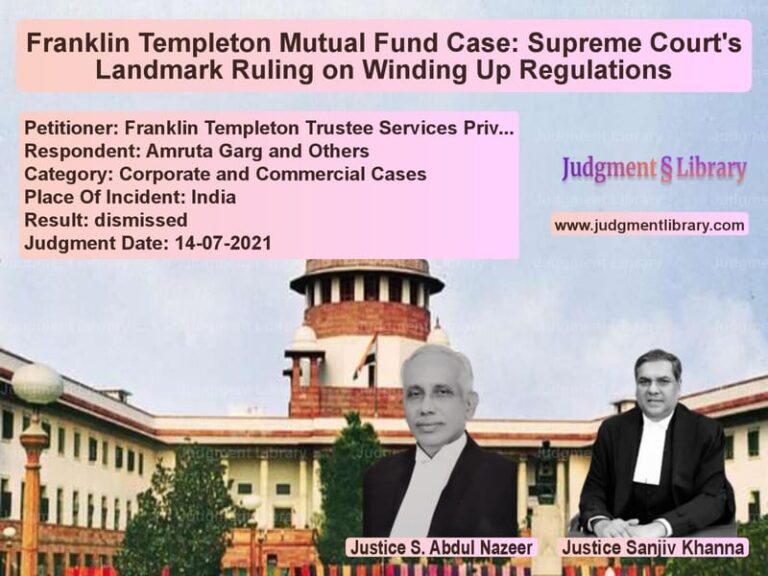Jamia Millia Islamia Faculty Reinstated: Supreme Court Orders Reinstatement of Professors
The case of Meher Fatima Hussain vs. Jamia Millia Islamia & Others revolves around the termination of faculty members at Jamia Millia Islamia University and their battle for reinstatement. The Supreme Court was tasked with determining whether the university’s decision to terminate their employment, despite a regular selection process and University Grants Commission (UGC) approval, was legally justified.
Background of the Case
The appellants, Meher Fatima Hussain, Sabiha Hussain, and Suraiya Tabassum, were faculty members at Jamia Millia Islamia University (JMI). They were appointed to various teaching positions at the Sarojini Naidu Centre for Women’s Studies through a selection process conducted by a duly constituted committee.
Key events in the case include:
- Meher Fatima Hussain was appointed as an Associate Professor on December 8, 2016.
- Sabiha Hussain was appointed as a Professor/Director on December 8, 2016.
- Suraiya Tabassum was appointed as an Assistant Professor on December 8, 2016.
- Their appointments were linked to the XII Plan period of the UGC Women’s Studies Scheme.
- The UGC later approved the merger of these posts into the regular establishment of JMI in April 2019.
- Despite this, the university decided to advertise their positions afresh in September 2020 instead of regularizing their appointments.
- A three-member committee appointed by the university recommended a fresh selection process and a disciplinary inquiry against the appellants.
Aggrieved by the university’s actions, the appellants challenged their termination before the Delhi High Court, which ruled against them. They subsequently appealed to the Supreme Court.
Arguments by the Petitioners (Faculty Members)
- Their appointments were made through a proper selection process in accordance with UGC regulations.
- The UGC had permitted the merger of their posts into the regular university establishment, making their termination arbitrary.
- The university’s decision to conduct a fresh selection process violated their rights under Article 14 of the Constitution of India (Right to Equality).
- The three-member committee’s recommendation to terminate their services was based on procedural lapses rather than substantive grounds.
- The High Court erred in applying the principles of State of Karnataka vs. Uma Devi (2006), which deals with irregular appointments, as their appointments were made through a legitimate selection process.
Arguments by the Respondents (Jamia Millia Islamia & UGC)
- Their appointments were made on tenure posts under a specific UGC scheme, which had a defined duration.
- Once the UGC approved the merger, a fresh selection process was necessary to ensure fairness and transparency.
- The university was not bound to continue their employment solely based on the UGC’s suggestion.
- A disciplinary inquiry was initiated against the appellants for alleged misconduct, further justifying their termination.
Supreme Court’s Analysis and Judgment
The Supreme Court ruled in favor of the faculty members, reinstating their employment and making the following key observations:
- Appointments were made through a valid selection process: “The appellants’ appointments in December 2016 were made according to a regular selection process commenced based on an advertisement dated 12th July 2016.”
- UGC approval supported their regularization: “UGC specifically informed the university that the teachers appointed through a proper selection process and fulfilling qualifications prescribed by UGC should be merged into the regular establishment.”
- High Court misapplied the Uma Devi case: “The view taken by the High Court is completely erroneous. The appellants were not backdoor entrants but were appointed through a legitimate process.”
- Termination was unjust and arbitrary: “Considering that the appellants were appointed after undergoing a regular selection process and possess relevant qualifications as per UGC norms, their termination was in violation of Article 14 of the Constitution of India.”
- Disciplinary inquiry did not affect reinstatement: “It will always be open for the university to proceed with the disciplinary inquiry, subject to all just objections by the appellants.”
Supreme Court’s Order
The Court issued the following directives:
- The judgments of the Delhi High Court were set aside.
- Jamia Millia Islamia University was ordered to reinstate the appellants to their respective posts.
- The appellants were entitled to continuity in service and other consequential benefits but would not receive pay for the period they were out of service.
- The university was directed to complete the reinstatement process within three months.
- If any teachers had been appointed to these posts through the new selection process, the university was to consider accommodating them in vacant posts, if available.
Conclusion
The Supreme Court’s ruling in this case sets a significant precedent for faculty employment rights in Indian universities. It underscores that universities must adhere to due process and cannot arbitrarily terminate faculty members whose appointments were made through a legitimate selection process. The judgment also highlights the binding nature of UGC regulations and the importance of fair employment practices in academic institutions.
Petitioner Name: Meher Fatima Hussain.Respondent Name: Jamia Millia Islamia & Others.Judgment By: Justice Abhay S. Oka, Justice Pankaj Mithal.Place Of Incident: New Delhi.Judgment Date: 15-04-2024.
Don’t miss out on the full details! Download the complete judgment in PDF format below and gain valuable insights instantly!
Download Judgment: meher-fatima-hussain-vs-jamia-millia-islamia-supreme-court-of-india-judgment-dated-15-04-2024.pdf
Directly Download Judgment: Directly download this Judgment
See all petitions in Employment Disputes
See all petitions in Termination Cases
See all petitions in Public Sector Employees
See all petitions in Recruitment Policies
See all petitions in Judgment by Abhay S. Oka
See all petitions in Judgment by Pankaj Mithal
See all petitions in allowed
See all petitions in Quashed
See all petitions in supreme court of India judgments April 2024
See all petitions in 2024 judgments
See all posts in Service Matters Category
See all allowed petitions in Service Matters Category
See all Dismissed petitions in Service Matters Category
See all partially allowed petitions in Service Matters Category

